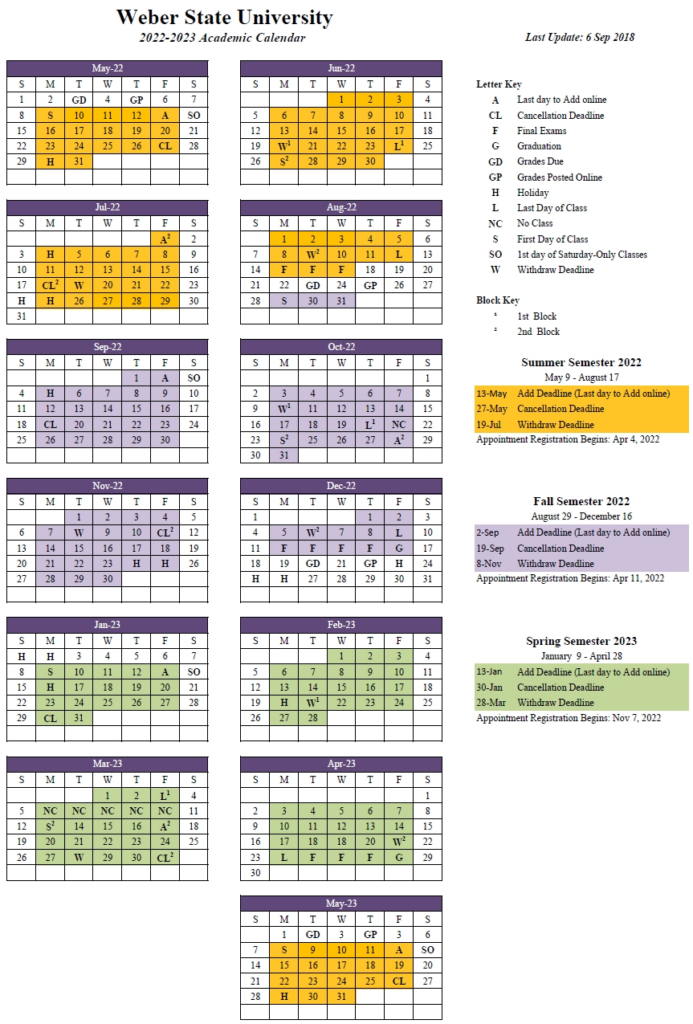Byu winter semester dates 2025: A Comprehensive Guide to Planning Your Academic Year

As the academic year progresses, students at Brigham Young University (BYU) are constantly looking ahead, meticulously planning their schedules, courses, and personal commitments. For many, the BYU Winter Semester stands as a cornerstone of their academic journey, offering a period of intense learning, spiritual growth, and community engagement. Understanding the precise BYU Winter Semester dates 2025 is not merely a matter of curiosity; it is an absolute necessity for successful academic planning, financial management, and a balanced student life. While the official, definitive academic calendar for 2025 is typically released well in advance by the BYU Registrar’s Office, this comprehensive guide aims to provide a detailed overview based on historical patterns, offering insights into what students can expect and how to effectively prepare for the upcoming semester.
The academic calendar at BYU is a carefully constructed framework designed to optimize the learning experience while accommodating university operations, religious observances, and student well-being. Every date, from the first day of classes to the final exam period, carries significant weight and implications for various aspects of student life. Therefore, a proactive approach to understanding these dates is paramount for all students, whether they are incoming freshmen, seasoned undergraduates, or pursuing graduate studies.
Anticipated Key Dates for BYU Winter Semester 2025 (Based on Historical Patterns):
While precise dates are subject to official confirmation by the BYU Registrar’s Office, a typical Winter Semester at BYU generally follows a predictable pattern. Students should use these approximate dates for preliminary planning and always refer to the official BYU Academic Calendar for the most accurate and up-to-date information.
- Classes Begin: Early to Mid-January 2025 (typically the first or second Monday of January, following the New Year’s holiday). This marks the official start of lectures, assignments, and the academic rhythm.
- Add/Drop Deadline (without fee): Approximately one to two weeks after classes begin. This crucial period allows students to adjust their course schedules, add new classes, or drop existing ones without incurring a financial penalty or having the course appear on their transcript.
- Last Day to Add Classes: Typically a few days after the add/drop deadline, but still within the first couple of weeks. After this, adding classes usually requires special permission.
- Last Day to Drop Classes (without W on transcript): Usually around the third or fourth week of the semester. This is the final opportunity to drop a course without it being recorded as a "W" (Withdrawal) on your academic transcript.
- Mid-Semester Break/President’s Day Holiday: Mid-February 2025. BYU typically observes President’s Day, providing a short break from classes.
- Last Day to Withdraw from Classes (with W on transcript): Often around the 10th or 11th week of the semester. This is a critical deadline for students facing academic difficulties, allowing them to withdraw from a course with a "W" grade, which does not impact GPA but does appear on the transcript.
- Last Day of Classes: Mid-April 2025. This signifies the end of regular instruction and the beginning of the study and final exam period.
- Study Days: Following the last day of classes, usually one or two days are designated as study days, providing students with dedicated time to prepare for final examinations.
- Final Examinations: Mid to Late April 2025. This period typically spans about a week, with a structured schedule for all final exams.
- Commencement/Graduation: Late April 2025. For those completing their degrees, this is the culmination of their academic efforts.
The Significance of the Academic Calendar: More Than Just Dates
Understanding the BYU Winter Semester dates 2025 goes far beyond merely knowing when classes start and end. Each date on the academic calendar serves as a critical marker, influencing various facets of a student’s university experience:
-
Academic Planning and Registration: The calendar dictates when registration opens for future semesters, when specific courses are offered, and the crucial add/drop and withdrawal deadlines. Missing these deadlines can have significant academic and financial repercussions, from being stuck in an unsuitable class to receiving a failing grade or incurring unnecessary tuition costs. Proactive planning based on these dates allows students to secure desired courses, manage their credit load effectively, and maintain satisfactory academic progress.
-
Financial Aid and Tuition Deadlines: The disbursement of financial aid, including scholarships, grants, and loans, is often tied to the start of the semester. Similarly, tuition payment deadlines are rigidly enforced. Students must align their financial planning with these dates to avoid late fees, holds on their accounts, or even being dropped from classes. Understanding when tuition is due and when financial aid will be available is vital for maintaining financial stability throughout the semester.
-
Housing and Living Arrangements: For students living on or off campus, the semester dates dictate move-in and move-out schedules. Knowing the start and end dates allows for timely arrangements for housing contracts, lease agreements, and travel plans. This is particularly important for international students or those traveling long distances.
-
Employment and Internships: Students balancing academic pursuits with part-time jobs or internships need to coordinate their work schedules with their class schedules and academic commitments. The semester dates, including holidays and exam periods, are essential for communicating availability to employers and managing work-life balance.
-
Personal and Spiritual Growth: BYU emphasizes a holistic education, integrating spiritual and personal development alongside academic rigor. The calendar includes university holidays and breaks, which provide opportunities for rest, family visits, service, and spiritual reflection. Planning around these breaks can enhance overall well-being and prevent burnout.
-
Graduation Planning: For students nearing graduation, specific deadlines for applying for graduation, submitting capstone projects, and fulfilling final requirements are intricately linked to the semester calendar. Missing these deadlines can delay graduation, impacting future career or educational plans.
Navigating Registration and Enrollment for Winter Semester 2025:
The process of registering for classes for the BYU Winter Semester 2025 is a multi-step procedure that begins long before the semester officially starts. Students typically gain access to registration windows based on their earned credit hours, with seniors often registering first.
- Priority Registration: This usually occurs several months before the semester begins (e.g., October/November for Winter Semester). Students should have their academic plans solidified, including required courses, electives, and any prerequisites. Utilizing MyBYU and the university’s course catalog to build a tentative schedule is highly recommended.
- Waitlists: If a desired class is full, students can often add themselves to a waitlist. Understanding the add/drop deadlines is crucial here, as spots often open up during the first week or two of the semester. Regularly checking waitlist status and email notifications is key.
- Academic Advising: Before and during the registration period, consulting with academic advisors is invaluable. They can help ensure students are on track for their major, understand course sequencing, and navigate any academic challenges.
Preparing for Success in Winter Semester 2025:
With the BYU Winter Semester dates 2025 in mind, students can adopt several strategies to ensure a successful and fulfilling semester:
- Mark Your Calendar: As soon as the official 2025 academic calendar is released, transfer all critical dates—class start, add/drop, withdrawal, holidays, final exams—to your personal planner, digital calendar, or academic planner. Set reminders for key deadlines.
- Proactive Course Planning: Research courses, check prerequisites, and create multiple schedule options. Have backup courses in mind in case your first choices are unavailable.
- Financial Preparedness: Review your financial aid status, understand tuition payment options, and budget for living expenses, books, and other necessities well in advance.
- Housing and Travel Logistics: Confirm your housing arrangements and make travel plans for the beginning and end of the semester, as well as any planned breaks.
- Health and Wellness: Prioritize your physical and mental health. The semester can be demanding, so ensure you have strategies for stress management, adequate sleep, and healthy eating habits.
- Utilize University Resources: BYU offers a wealth of resources, including the Registrar’s Office, Academic Advisement, Financial Aid Office, Counseling and Psychological Services (CAPS), and the University Accessibility Center. Familiarize yourself with these resources and don’t hesitate to use them when needed.
Where to Find Official Information:
The single most reliable source for the official BYU Winter Semester dates 2025 will be the Brigham Young University Registrar’s Office website. Students should regularly check the "Academic Calendar" section on the Registrar’s site (registrar.byu.edu) for the most accurate and confirmed dates. University announcements via email and the MyBYU portal will also provide timely updates.
Conclusion:
The BYU Winter Semester dates 2025 form the backbone of the academic experience for thousands of students. While the precise calendar is yet to be officially released, understanding the typical structure and the profound implications of each date is crucial for effective planning and a successful semester. By proactively engaging with the academic calendar, utilizing university resources, and preparing thoroughly, BYU students can navigate the Winter Semester with confidence, maximizing their opportunities for academic achievement, personal growth, and spiritual development within the unique and enriching environment that BYU offers. Stay informed, plan wisely, and embrace the journey that the Winter Semester 2025 will undoubtedly bring.






